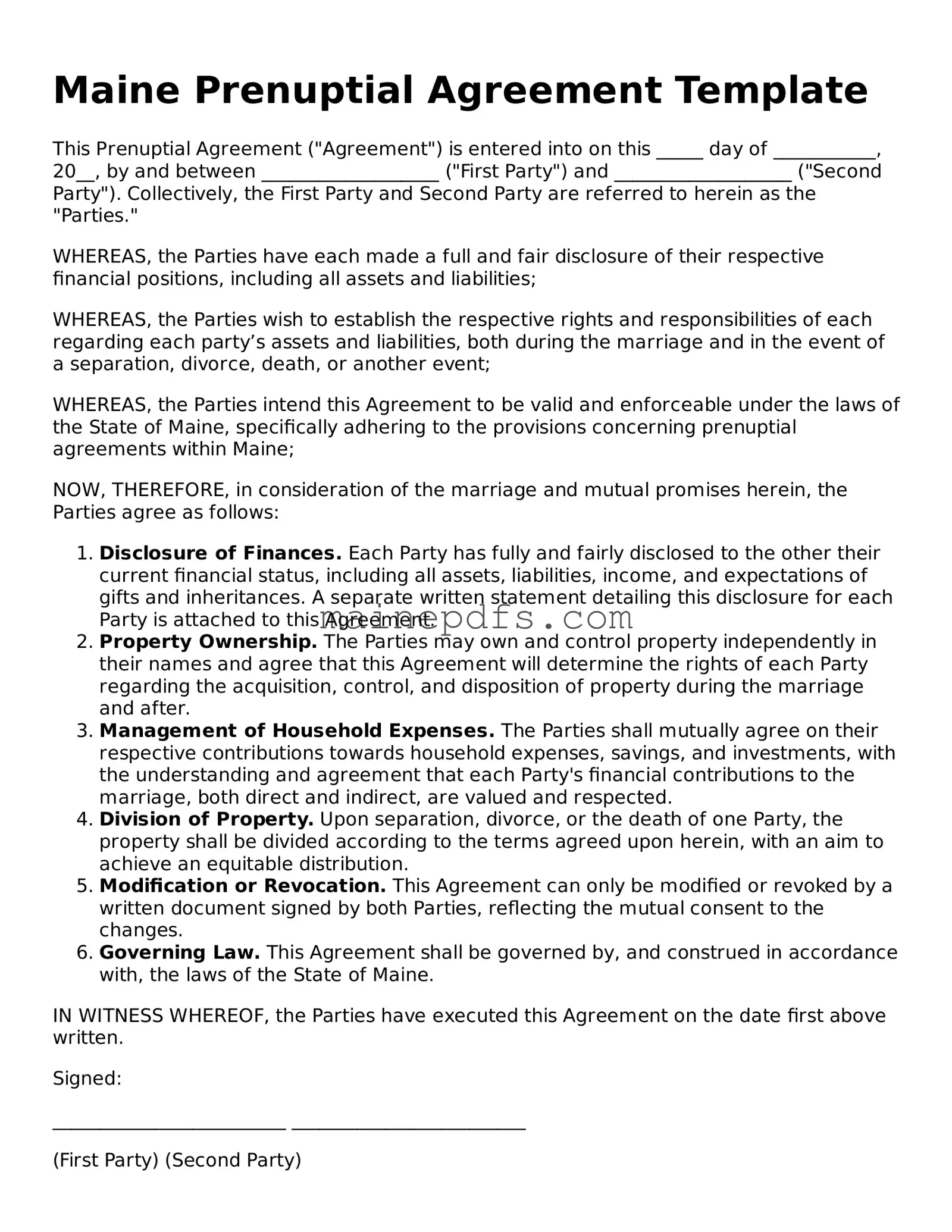Maine Prenuptial Agreement Template
This Prenuptial Agreement ("Agreement") is entered into on this _____ day of ___________, 20__, by and between ___________________ ("First Party") and ___________________ ("Second Party"). Collectively, the First Party and Second Party are referred to herein as the "Parties."
WHEREAS, the Parties have each made a full and fair disclosure of their respective financial positions, including all assets and liabilities;
WHEREAS, the Parties wish to establish the respective rights and responsibilities of each regarding each party’s assets and liabilities, both during the marriage and in the event of a separation, divorce, death, or another event;
WHEREAS, the Parties intend this Agreement to be valid and enforceable under the laws of the State of Maine, specifically adhering to the provisions concerning prenuptial agreements within Maine;
NOW, THEREFORE, in consideration of the marriage and mutual promises herein, the Parties agree as follows:
- Disclosure of Finances. Each Party has fully and fairly disclosed to the other their current financial status, including all assets, liabilities, income, and expectations of gifts and inheritances. A separate written statement detailing this disclosure for each Party is attached to this Agreement.
- Property Ownership. The Parties may own and control property independently in their names and agree that this Agreement will determine the rights of each Party regarding the acquisition, control, and disposition of property during the marriage and after.
- Management of Household Expenses. The Parties shall mutually agree on their respective contributions towards household expenses, savings, and investments, with the understanding and agreement that each Party's financial contributions to the marriage, both direct and indirect, are valued and respected.
- Division of Property. Upon separation, divorce, or the death of one Party, the property shall be divided according to the terms agreed upon herein, with an aim to achieve an equitable distribution.
- Modification or Revocation. This Agreement can only be modified or revoked by a written document signed by both Parties, reflecting the mutual consent to the changes.
- Governing Law. This Agreement shall be governed by, and construed in accordance with, the laws of the State of Maine.
IN WITNESS WHEREOF, the Parties have executed this Agreement on the date first above written.
Signed:
_________________________ _________________________
(First Party) (Second Party)
Date: ___________________ Date: ___________________

